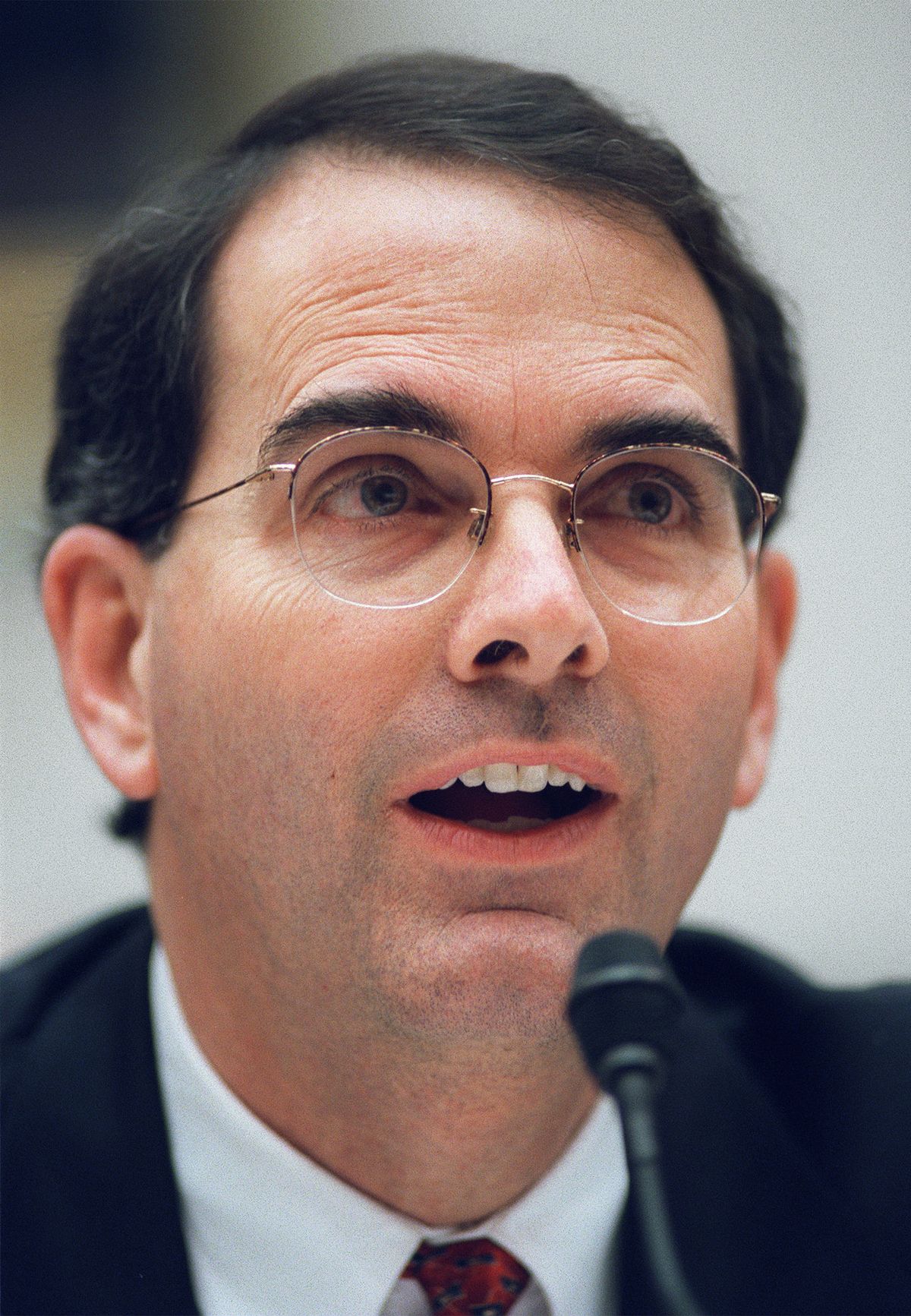Report clears two Bush lawyers
Inquiry finds Bybee, Yoo used ‘poor judgment’

WASHINGTON – An internal Justice Department report made public Friday concluded that two former Bush administration lawyers used “poor judgment” in issuing legal memos authorizing waterboarding and other harsh interrogation tactics against suspects in the post-Sept. 11 period.
But the report by the department’s Office of Professional Responsibility stopped short of charging the attorneys with committing professional misconduct or leveling any punishment against them, noting that they did not purposely give bad legal advice to CIA interrogators and others dealing with suspects captured after the terrorist attacks.
The two lawyers, Jay Bybee and John Yoo, had risked losing their law licenses or other sanctions. Withstanding such punishment would have been difficult for Bybee, a federal judge, and Yoo, who teaches law at the University of California at Berkeley. However state bar associations still could address the allegations by taking action against the two men.
The memos by Bybee and Yoo gave the green light for captives to be stripped and held in stressful positions, kept for long periods in the cold, and strapped to waterboards to undergo a technique that involves pouring water down the nose and mouth to simulate drowning. According to a CIA report, Khalid Sheikh Mohammed, the self-professed Sept. 11 mastermind, was waterboarded at least 183 times. The memos further authorized detainees to be slapped and deprived of food.
David Margolis, associate deputy attorney general, said in his report that the Bybee and Yoo memos “contained some significant flaws.” But, he said, “as all that glitters is not gold, all flaws do not constitute professional misconduct.”
However, Margolis, a 17-year veteran of several administrations, said that “it is a close question” as to whether Yoo intentionally or recklessly provided misleading advice to interrogators that cleared the path for harsh torture tactics.
“I fear that John Yoo’s loyalty to his own ideology and convictions clouded his view of his obligations” to the give the interrogators correct legal advice, and “led him to author opinions that reflected his own extreme, albeit sincerely held, views of executive power.”
Margolis said that in the case of Bybee, there was no evidence that he “exhibited conscious indifference to the consequences of his behavior” in telling interrogators that torture was acceptable.
The decision not to level harsher punishment against the two lawyers prompted outrage on Capitol Hill, especially from the Democratic chairmen of the House and Senate judiciary committees. Sen. Patrick Leahy of Vermont and Rep. John Conyers Jr. of Michigan each said they would hold hearings on the matter.
“Those memos were legally flawed and fundamentally unsound,” Conyers said, “and may have been improperly influenced by a desire to tell the Bush White House and the CIA what it wanted to hear.”